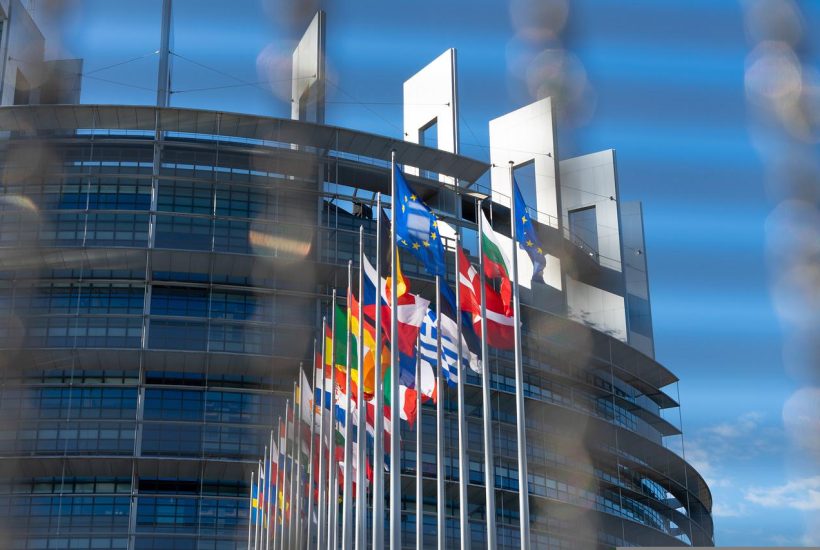Featured
New Boost for ESG Products
Germany in particular is on the right track here. Last year, the investment volume of private investors tripled to more than €130 billion, according to surveys by the Forum nachhaltige Geldanlagen trade association. But because there are still no precise minimum standards for ESG products, the role of the investment advisor is becoming increasingly important.

The new provision states that, as of August 2nd, 2022, investment advisors are required to explicitly ask their potential clients during advisory meetings whether they want to consider sustainable investments in their investment strategy.
If you want to read more about the new Mifid II rule introduced in Europe and to find the latest financial news in the world, download for free the Born2Invest mobile app.
Advisors with new responsibilities
The newly introduced Mifid II rule comes at the right moment: Already, around 80 percent of all green investments come from Europe, according to a study by analyst Morningstar. The old continent is thus establishing itself as a focal point for climate, environmental, and socially responsible investment products. In order to further support this trend and to prevent distortions in the future, investment advisors should do their bit to firmly anchor the issue of sustainability in the minds of the investment community.
Germany in particular is on the right track here. Last year, the investment volume of private investors tripled to more than €130 billion, according to surveys by the Forum nachhaltige Geldanlagen trade association. But because there are still no precise minimum standards for ESG products, the role of the investment advisor is becoming increasingly important.
A broad information base is still important
Even in view of the increased duty of investment advisors to provide information, it is worthwhile for investors to take an additional close look at the issuer and the companies included. Precisely because the question of what is sustainable and what is not has not yet been definitively settled, every investor is called upon to evaluate products on the basis of his or her own ideas.
A good example of this is the issue of nuclear power. As is well known, the EU has classified nuclear power plants as sustainable energy sources on a transitional basis until renewable energies can take over full supply. But this view is not without controversy.
For many investors, nuclear power means a no-go in sustainable investments. Therefore, only a detailed look at the product portfolio of an ESG product can definitively clarify whether it matches one’s own views, beliefs, and expectations.
The same is true for natural gas. Quite a few ESG products include gas-fired power plants as a climate-friendly energy source. Investors can only decide for themselves whether the use of fossil fuel is actually climate and environmentally friendly.
Impact funds – investment products that not only act as a green seal but actively seek to influence the environmental policies of countries – contain neither. They consistently focus on renewable energies and companies with high-quality social compliance. But here, too, it’s worth taking a close look to make sure the contents match the packaging.
Personal initiative with massive impact
The special feature of sustainable investments is: that the investor is not just a customer – he is an active protagonist on the way to a climate-neutral and sustainable future. By making individual investment decisions, an individual can have a significant impact on the direction of governmental and international climate policy. In particular, a close look at the composition of ESG products helps to separate the wheat from the chaff.
There are still – albeit increasingly rare – supposedly sustainable bonds that include oil companies or manufacturing plants with unfair production conditions. The attention of the individual investor helps to keep the segment of sustainable investments clean and thus to have an optimum impact.
__
(Featured image by USA-Reiseblogger via Pixabay)
DISCLAIMER: This article was written by a third party contributor and does not reflect the opinion of Born2Invest, its management, staff or its associates. Please review our disclaimer for more information.
This article may include forward-looking statements. These forward-looking statements generally are identified by the words “believe,” “project,” “estimate,” “become,” “plan,” “will,” and similar expressions. These forward-looking statements involve known and unknown risks as well as uncertainties, including those discussed in the following cautionary statements and elsewhere in this article and on this site. Although the Company may believe that its expectations are based on reasonable assumptions, the actual results that the Company may achieve may differ materially from any forward-looking statements, which reflect the opinions of the management of the Company only as of the date hereof. Additionally, please make sure to read these important disclosures.
First published in EURO LEADERS, a third-party contributor translated and adapted the article from the original. In case of discrepancy, the original will prevail.
Although we made reasonable efforts to provide accurate translations, some parts may be incorrect. Born2Invest assumes no responsibility for errors, omissions or ambiguities in the translations provided on this website. Any person or entity relying on translated content does so at their own risk. Born2Invest is not responsible for losses caused by such reliance on the accuracy or reliability of translated information. If you wish to report an error or inaccuracy in the translation, we encourage you to contact us.

-

 Business2 weeks ago
Business2 weeks agoBattered, but Still Bullish on Gold & Silver
-

 Impact Investing3 days ago
Impact Investing3 days agoEU Backs 90% Emissions Cut by 2040 and Delays ETS2 Rollout
-

 Crowdfunding1 week ago
Crowdfunding1 week agoNewcleo Raises $85 Million to Advance Fourth-Generation Nuclear Reactors
-

 Biotech5 days ago
Biotech5 days agoDNA Origami Breakthrough in HIV Vaccine Research

























